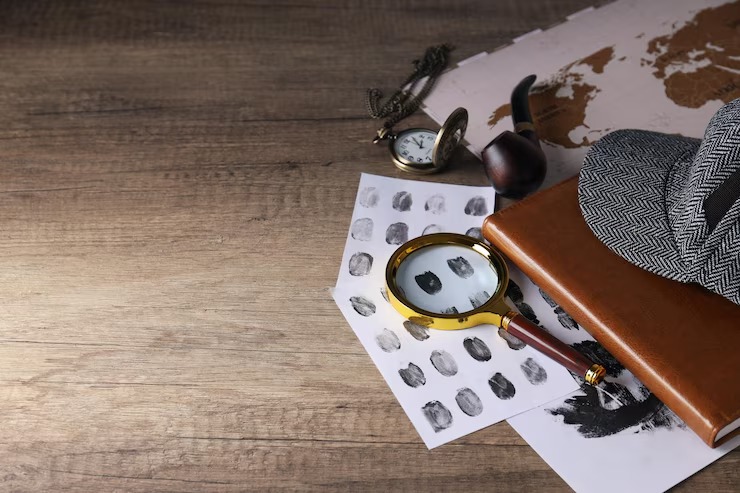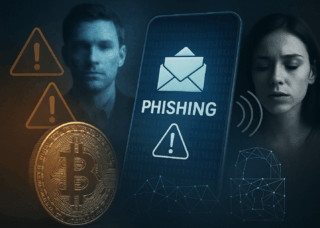Who are Private investigators?
We know that when most people hear the word private investigator, they are thinking of mysterious figures in trench coats hiding behind a bush. But in reality, most of our time is actually spent doing some routine tasks like keen observation, information gathering, and strict adherence to the law.
Here at Privin Network, we dive deep into these realities every day, blending tradition with cutting-edge technology to solve cases. Whether you’re just curious about the profession or looking for PI assistance, you’re in the right place.
In this article we are uncovering the truth behind the profession that is private investigation, from history to the legal framework governing the professionals, we are taking you behind the scenes. Let’s go!
History of Private Investigation
Private investigation as a recognized profession can be traced back to the 19th century with the establishment of the Pinkerton National Detective Agency in 1850 by Allan Pinkerton. Known for preventing an assassination plot against Abraham Lincoln, Pinkerton set the standard for investigative techniques that combined undercover work with the latest technology of the time.
His agency was also renowned for tracking notorious outlaws, including Jesse James and the Reno Gang, thus solidifying the role of private investigators in law enforcement and public protection.

Legal Framework Governing Private Investigators in the USA
The legal framework that governs private investigators in the United States is intricate, involving federal, state, and local laws:
State Licensing
Each state has a governing body that oversees the licensing process. These bodies ensure that investigators adhere to state laws and regulations, maintaining the profession’s integrity. Licensing requirements for private investigators vary significantly by state. Common requirements include a combination of education in criminal justice or a related field, professional experience, and passing a state-administered examination. For instance, in California, applicants must meet specific criteria outlined by the California Department of Consumer Affairs.
Federal Privacy Laws
This federal law governs the collection and use of consumer information, ensuring that private investigators use this data responsibly and legally. Investigators must comply with FCRA when conducting background checks and other related activities. Detailed information can be found on the Federal Trade Commission’s website.
Additionally, the Electronic Communications Privacy Act (ECPA) protects wire, oral, and electronic communications while they are being made, in transit, and when they are stored on computers. This law is crucial for private investigators who utilize electronic surveillance and must ensure they are not violating privacy rights.
Professional Ethics
Ethical guidelines are essential to maintaining the integrity of the private investigation profession. The National Council of Investigation & Security Services (NCISS) provides comprehensive guidelines on ethical standards, which include maintaining client confidentiality, avoiding conflicts of interest, and conducting investigations within the bounds of the law. More about these guidelines can be explored on the NCISS website.
Current Trends and Technological Advancements
Modern private investigators blend traditional skills with cutting-edge technology. Digital forensics, GPS tracking, and social media have become fundamental tools in the investigator’s arsenal. These technologies allow investigators to gather evidence more efficiently and from a broader range of sources. Additionally, we use a wide variety of databases to gather insights and information.

One of the significant developments influencing investigative practices is the case of Carpenter v. United States (2018). In this case, the Supreme Court ruled that the government must obtain a warrant to access cell phone location data. This landmark decision emphasized the importance of respecting digital privacy rights and obtaining proper legal authorization when accessing personal information. This ruling has had a profound impact on how private investigators handle digital evidence and ensure their practices comply with legal standards. You can read more about this case on the Supreme Court’s official website.
The U.S. market for private detectives is expected to grow, driven by increased demand for digital investigations and corporate security services. As technology continues to evolve, private investigators are continually adapting, integrating new tools and methodologies to stay ahead in the field.
Frequently Asked Questions about Private Investigation
What qualifications are needed to become a private investigator?
The qualifications required to become a private investigator vary by state but typically include a high school diploma or equivalent, a clean criminal record, and a certain amount of experience or training in a related field, such as law enforcement or criminal justice. Some states also require passing a licensing exam. Continuing education may be required to maintain licensure.
How do private investigators ensure confidentiality and legality in their work?
Private investigators adhere to strict ethical guidelines and legal regulations to ensure confidentiality and legality. They must operate within the bounds of the law, which includes respecting privacy laws and not engaging in illegal activities such as trespassing or wiretapping without consent. Confidentiality agreements with clients ensure that sensitive information is handled discreetly. Here’s our detailed guide for what to expect when working with a private investigator.
What are the legal limits of private investigation?
Private investigators are licensed individuals who help civilians conduct investigations. Their role is mostly limited to observing, gathering data, and providing insights about a case or situation. They cannot obtain information through illegal means such as hacking or trespassing. They also adhere to state and federal laws regarding surveillance and privacy.
Can private investigators make arrests?
No, private investigators do not have the authority to make arrests. Private investigators are not police detectives. Their role is to gather information and evidence legally, which may then be used by law enforcement agencies if necessary.
What types of cases do private investigators typically handle?
Private investigators handle a variety of cases including but not limited to background checks, marital disputes, missing persons, fraud investigations, and corporate espionage. They may also specialize in specific areas like forensic accounting, cybersecurity, or family law.
How does someone choose a reputable private investigator?
To choose a reputable private investigator, look for licensing and credentials, check references and reviews, and verify experience and specialization in the specific type of investigation required. It’s also important to ensure they adhere to professional ethics and legal standards.
What technologies are changing the private investigation industry?
Emerging technologies such as GPS tracking, drones, advanced surveillance equipment, and software for digital forensics are changing the private investigation industry. These tools enhance the ability of investigators to gather and analyze information more efficiently and with greater accuracy.
Is hiring a private investigator confidential?
Yes, hiring a private investigator is confidential. Investigators are bound by professional ethics to maintain the confidentiality of their clients and their information.
What legal limitations do private investigators face in their work?
Legal limitations include restrictions on entering private property without consent, using certain surveillance methods, and accessing private information such as bank records without the necessary legal permissions. Compliance with these limitations is crucial to avoid legal repercussions and ensure the integrity of the investigation.
To Conclude
We hope this guide helped you understand the field of Private investigation a little better. The field of private investigation continues to evolve, driven by technological advancements and changes in the legal landscape. Private investigators remain vital in addressing the complex challenges of our time, maintaining high levels of expertise and ethical standards.
At PRIVIN Network, we understand the complexities of personal and professional dilemmas. Whether you’re facing a personal issue or need to resolve a corporate matter, our team of experienced private investigators is equipped to provide the clarity and results you need.
For details about how we can help you, please visit our Services Page. Contact us today to get started.






